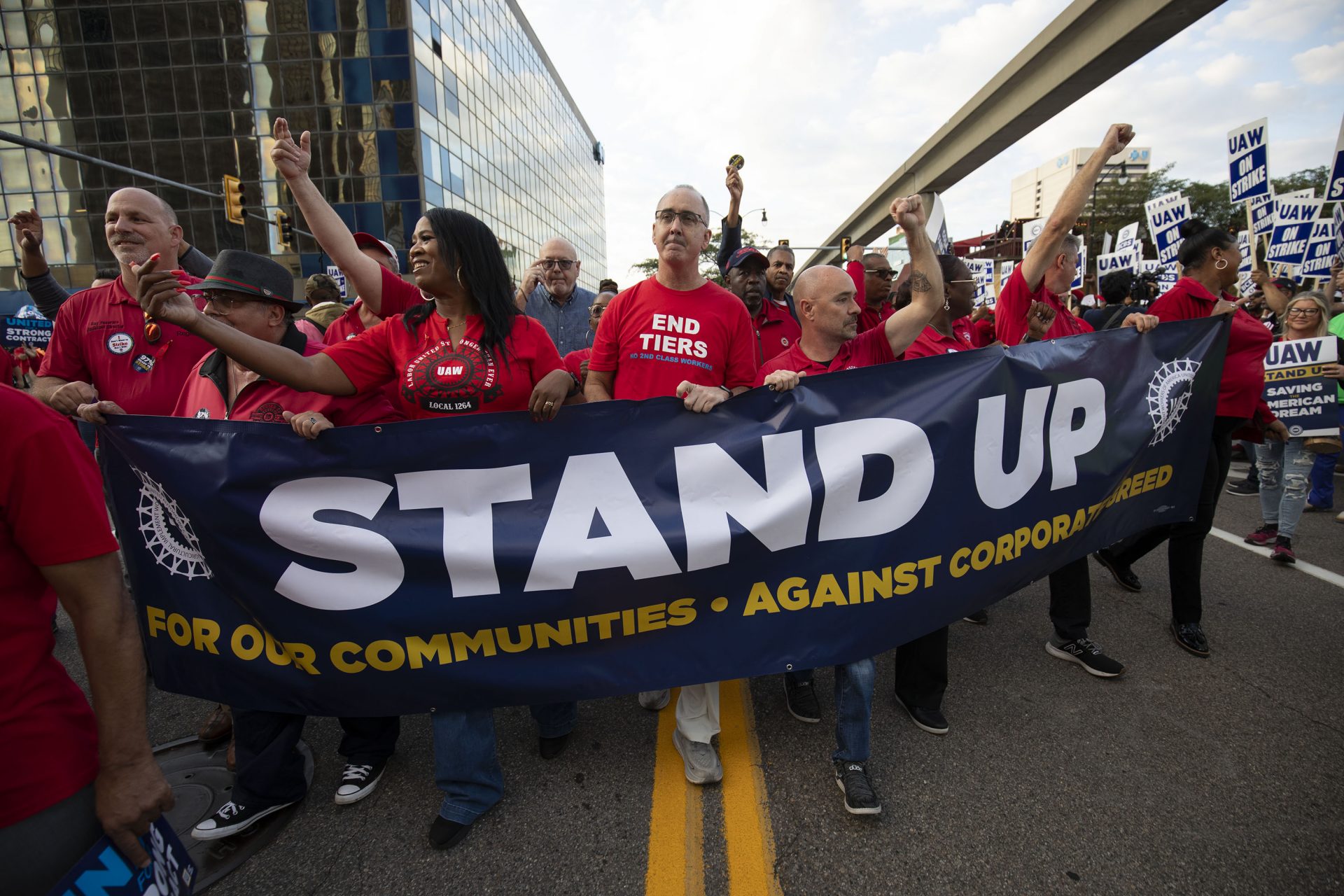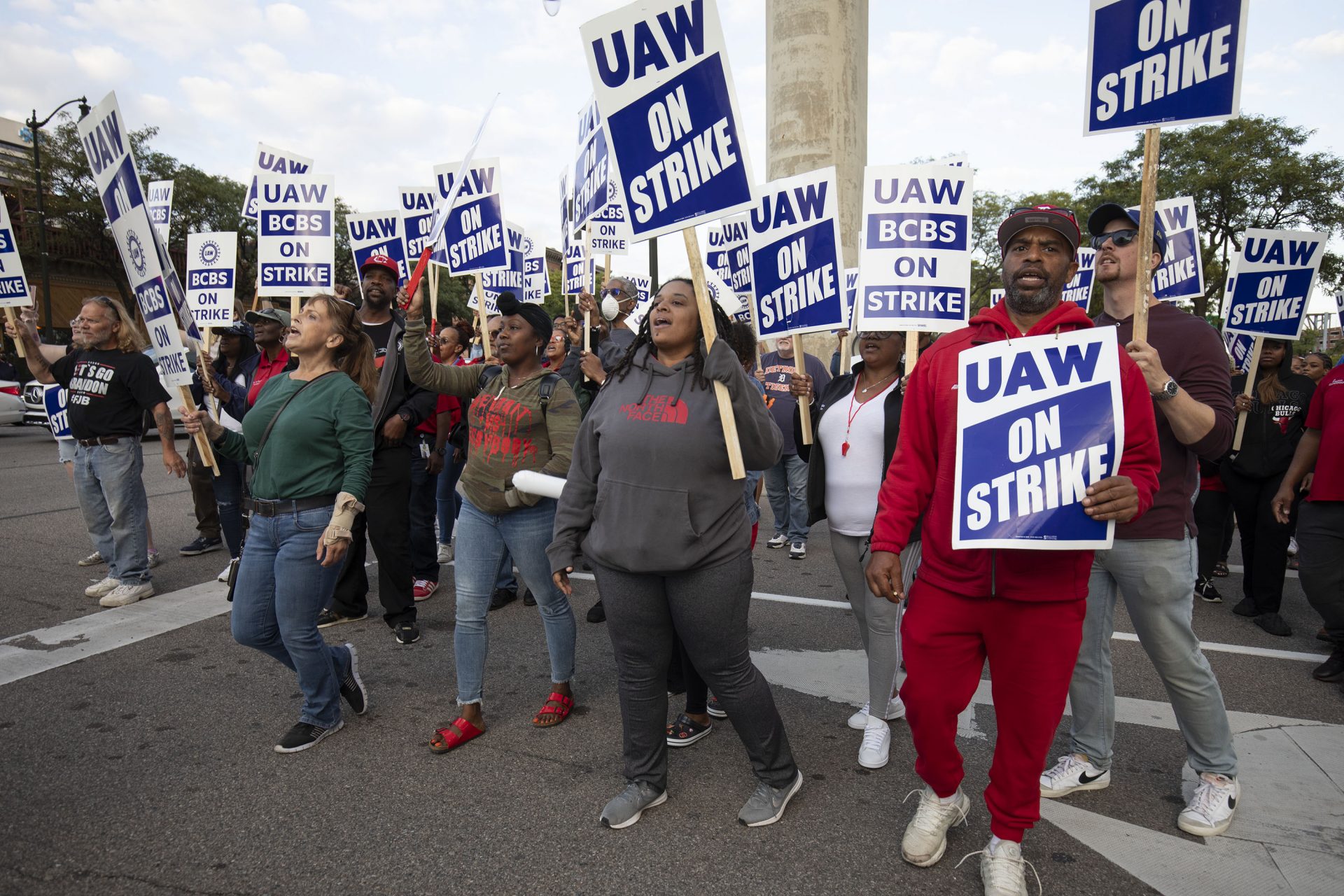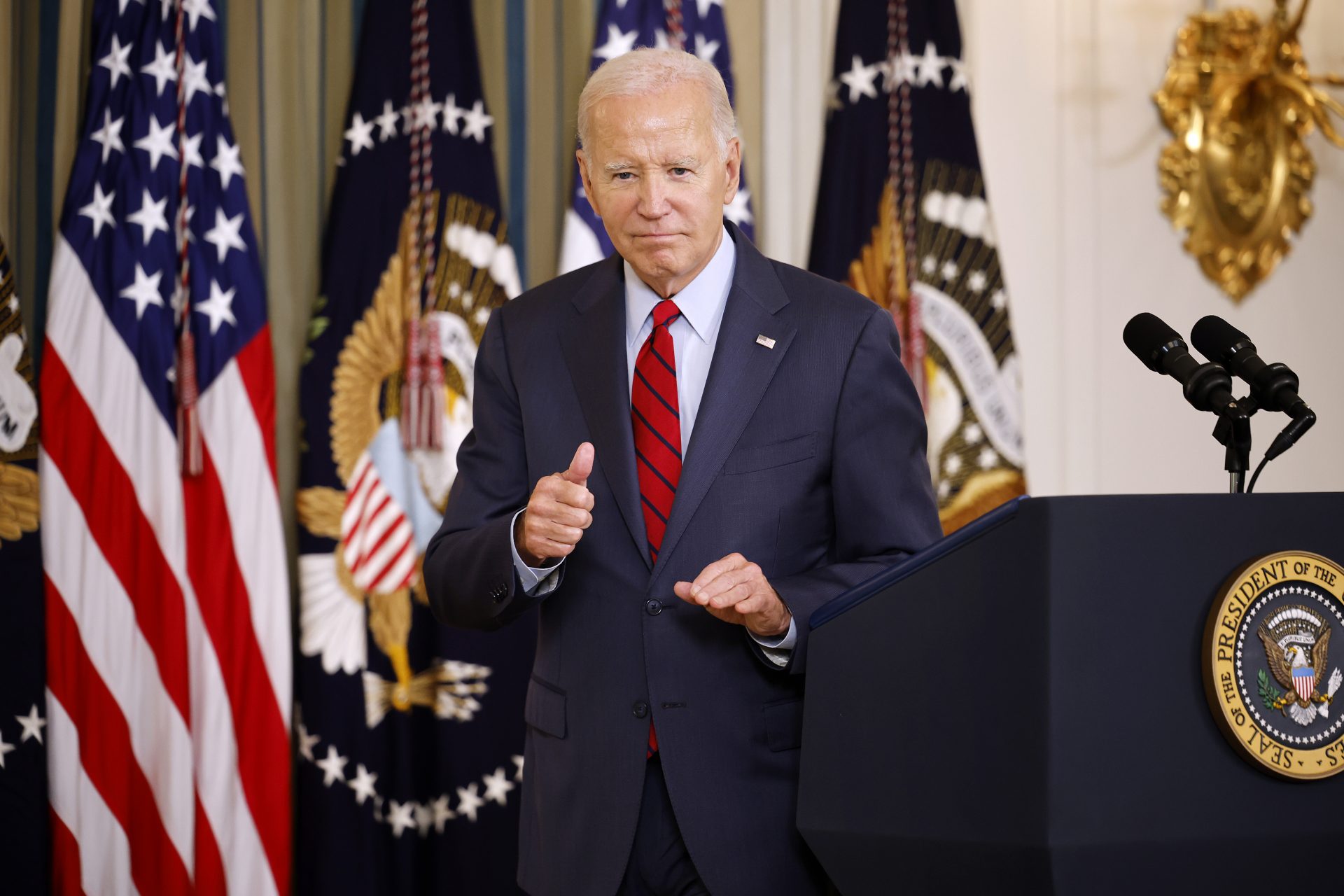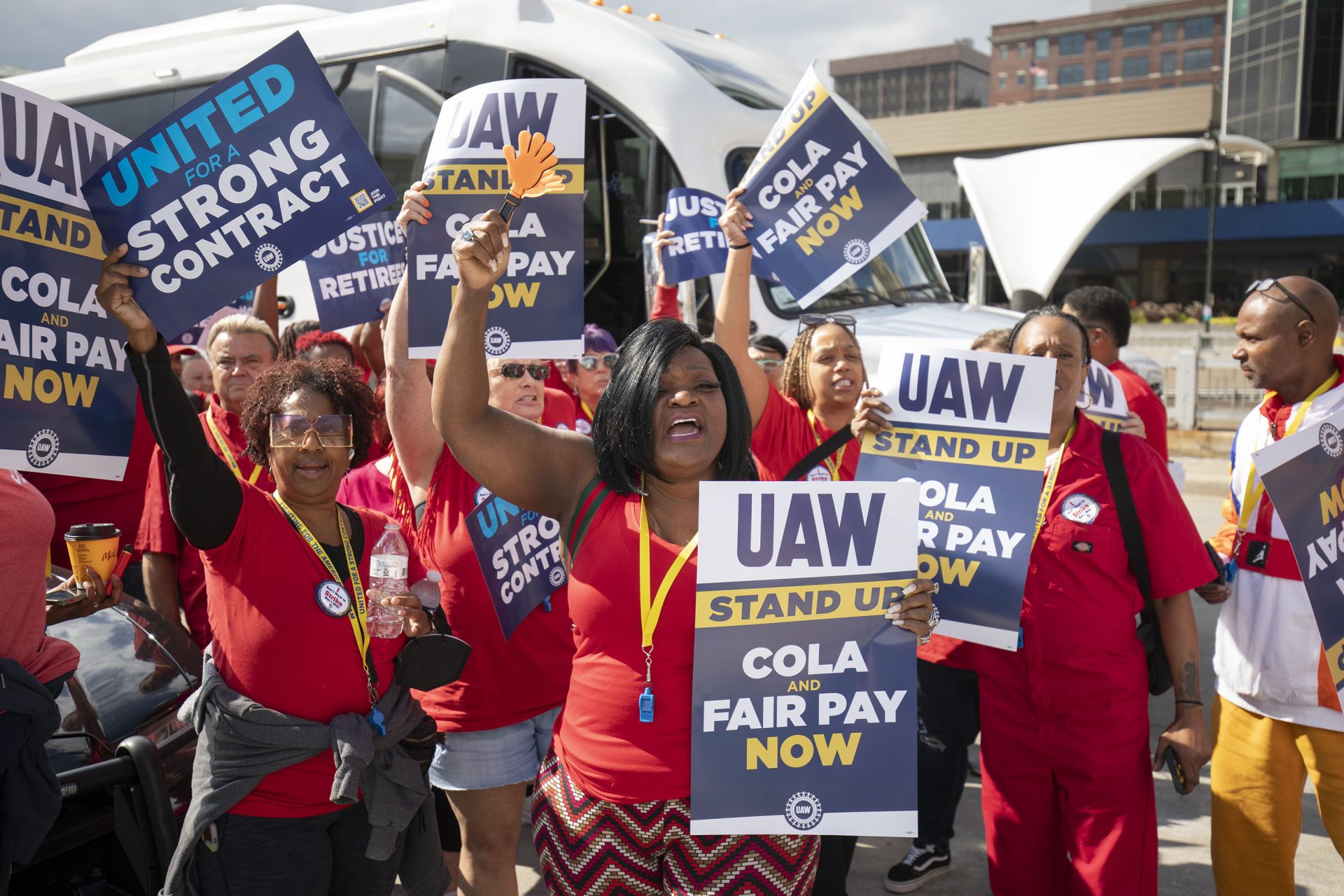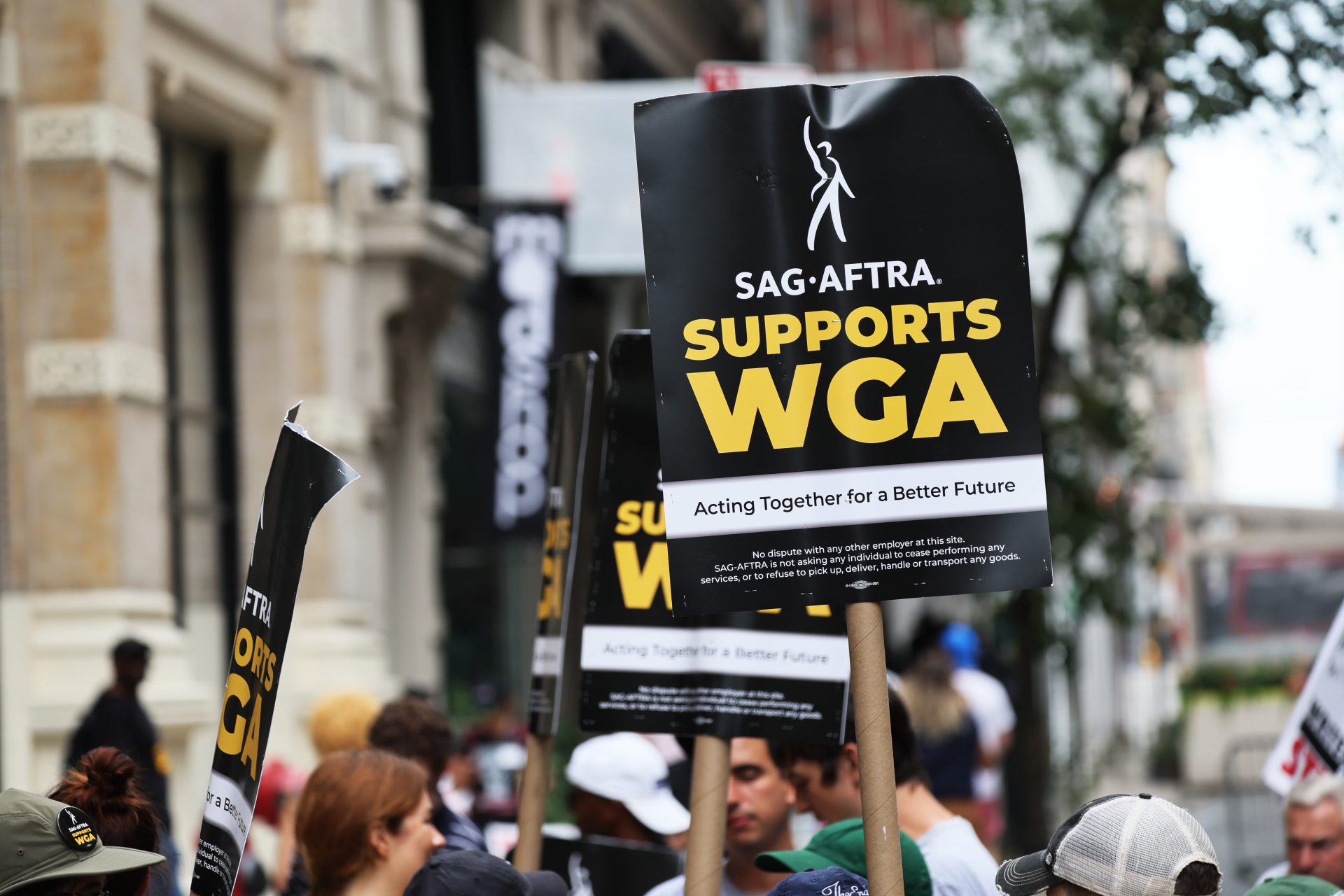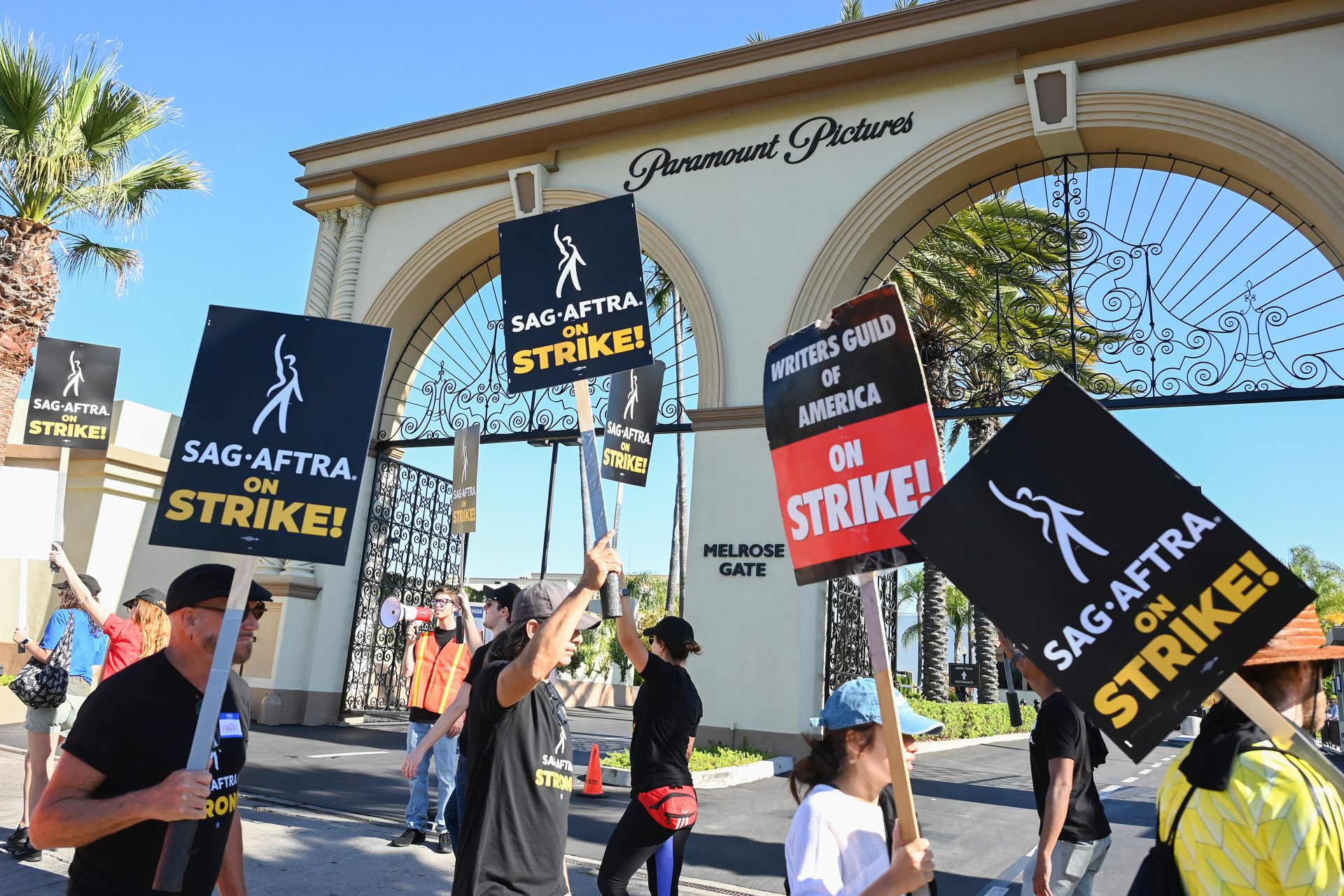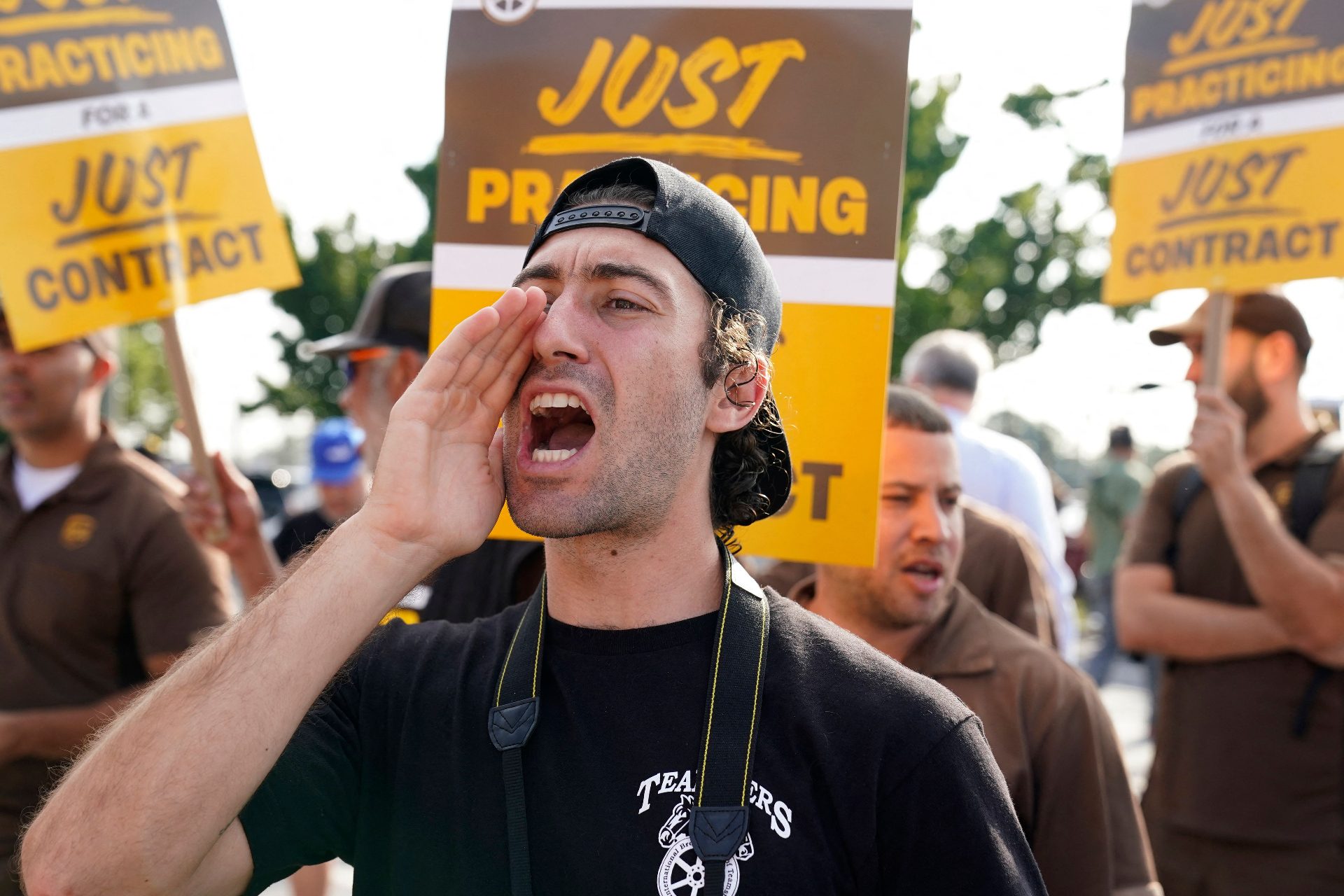Automakers union strike sheds light on workers' discontent in US
In Detroit, 13,000 workers from three automakers walked off the job on September 14. The United Auto Workers organized what NBC has called one of the largest work stoppages in the past three decades.
Workers of General Motors, Ford, and Chrysler owned Stellantis are striking together for the first time in history, calling for wage increases.
The union is asking for a 36% wage increase for workers in the next four years, while the companies' negotiators have offered raises from 17.5% to 20%. They also ask for reduced hours, cost-of-living wage raises, and similar benefits.
The significant breach between both numbers has led the union to break negotiations, a historic decision by Union President Shawn Fain, the first one elected directly by workers.
According to the AP, President Biden supported the workers by calling on the three companies to share some of their "record profits" and sending aid for negotiation.
If the strike drags on for long, it could affect car production and ultimately raise prices for consumers or push them to buy from foreign automakers that do not have this issue.
Workers cited by several media say they hope the strike will end soon and negotiations resume to pursue a favorable deal for them, as they have a straightforward demand.
The inequality inside the companies has been a significant driver in the worker's decision to strike. The CEOs of the three Detriot automakers earn hundreds of times the median worker's salary.
The idea that CEOs and shareholders benefit from companies' wide margins of benefit while workers struggle has earned traction across many sectors in the US.
Sectors as broad as entertainment, education, logistics, or transportation are currently experiencing strikes or negotiations, showing how worker discontent affects the country.
An example is the Hollywood writers and actors strike in California. Unions have openly discussed how the considerable benefits of executives rarely fall to the bottom of the workforce.
The months-long fight that started with writers and then continued with actors has delayed production and cost studios millions. Negotiations resumed as auto workers broke theirs.
In Los Angeles, teachers struck over payment for three days, pushing the shutdown of the second-largest school district in the US. Teachers are doing something similar in Washington to complain about class sizes.
American Airlines flight attendants, who have not received wage raises since 2019, voted to authorize a strike in August. Now, workers from other airlines threaten a holiday strike and demand a 40% wage raise, the same received by pilots, according to The Guardian.
Workers from the country's largest locomotive manufacturer struck for two months during the summer. According to the AP, about 1,400 people walk off the job at its Pennsylvania plant.
UPS workers almost started picket lines. However, the company managed to avoid a walk-off that would have affected package delivery in the whole country by offering a new contract with a new standard for pay and benefits.
More for you
Top Stories



